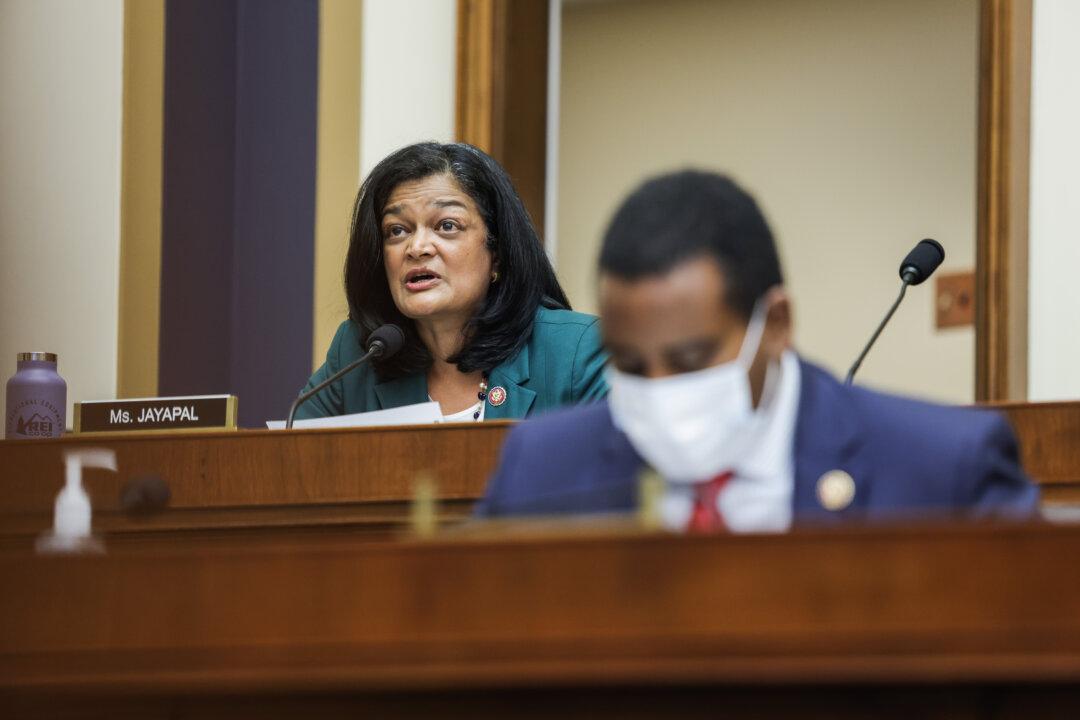Progressive lawmakers in the Democratic Party say it’s not the cost of the current budget reconciliation package that is their concern, but rather making sure all their social programs are fully funded.
Congressional Progressive Caucus (CPC) Chairwoman Rep. Pramila Jayapal (D-Wash.) and progressive Sen. Elizabeth Warren (D-Mass.) both recently told news outlets that while funding for key social programs must be included in the budget reconciliation for their caucus to vote in favor of the mammoth $3.5 trillion package, they may be open to a shorter funding cycle to meet conservatives and moderates in their party halfway.





